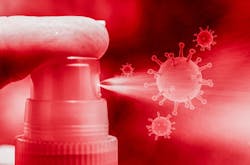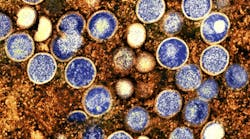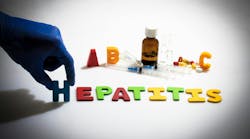A new study shows that the World Health Organization (WHO) has determined the virucidal activity of WHO–recommended hand rub formulations, at full strength and multiple dilutions, and of the active ingredients. All disinfectants demonstrated efficient virus inactivation of severe acute respiratory syndrome coronavirus 2.
Severe acute respiratory syndrome coronavirus 2 (SARS-CoV-2) is the third highly pathogenic human coronavirus to cross the species barrier into the human population during the past 20 years (1–3). SARS-CoV-2 infection is associated with coronavirus disease (COVID-19), which is characterized by severe respiratory distress, fever, and cough and high rates of mortality, especially in older persons and those with underlying health conditions (3). The WHO declared SARS-CoV-2 a pandemic on March 11, 2020, and by April 8, a total of 1,447,466 confirmed cases and 83,471 deaths from SARS-CoV-2 had been reported worldwide.
Human-to-human transmission of SARS-CoV-2 is efficient, and infected persons can transmit the virus even when they have no, or only mild, symptoms. Because no antiviral drugs or vaccines are available, virus containment and prevention of infection are the current highest priorities. To limit virus spread, effective hand hygiene is crucial. Therefore, easily available but efficient disinfectants are needed.
The WHO’s guidelines for hand hygiene in healthcare suggest two alcohol-based formulations for hand sanitization to reduce the infectivity and spread of pathogens. WHO’s recommendations are based on fast-acting, broad-spectrum microbicidal activity, along with accessibility and safety. The original WHO formulations failed to meet the efficacy requirements of European Norm 1500 in previous tests. However, Suchomel et al. suggested modified versions with increased concentrations of ethanol: 80 percent (wt/wt) (85.5 percent [vol/vol]; formulation I), or isopropanol, 75 percent (wt/wt) (81.3 percent [vol/vol]; formulations II). Later, they complemented these by reducing the glycerol concentrations.
Researchers previously showed that these modified WHO formulations were able to inactivate severe acute respiratory syndrome coronavirus (SARS-CoV) and Middle East respiratory syndrome coronavirus (MERS-CoV), which are related to SARS-CoV-2. Current recommendations to inactivate SARS-CoV-2 were translated from findings of other coronaviruses. To evaluate whether these alcohol-based disinfectants also effectively inactivate SARS-CoV-2, they tested different concentrations of the original and modified WHO formulations I and II, ethanol, and 2-propanol for virucidal activity.
The team found that SARS-CoV-2 was efficiently inactivated by WHO-recommended formulations, supporting their use in healthcare systems and viral outbreaks. Of note, both the original and modified formulations were able to reduce viral titers to background level within 30 s. In addition, ethanol and 2-propanol were efficient in inactivating the virus in 30 s at a concentration of >30 percent (vol/vol). Alcohol constitutes the basis for many hand rubs routinely used in healthcare settings. One caveat of this study is the defined inactivation time of exactly 30 s, which is the time recommended but not routinely performed in practice. Our findings are crucial to minimize viral transmission and maximize virus inactivation in the current SARS-CoV-2 outbreak.





